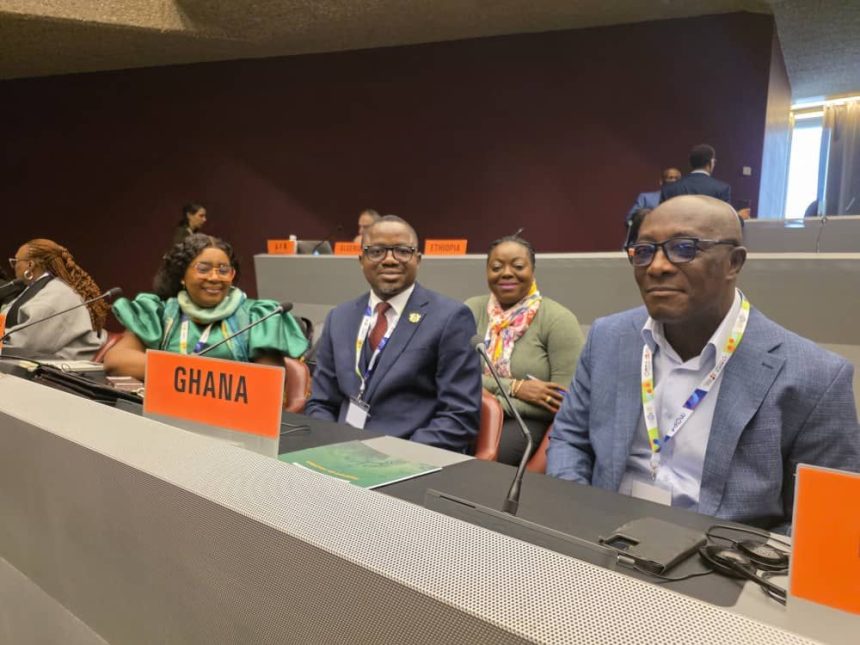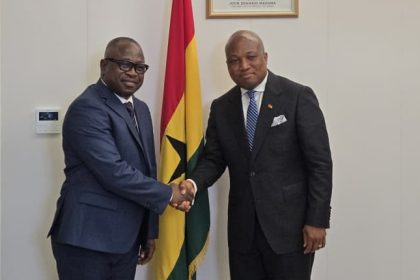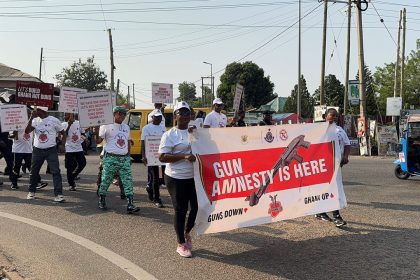Professor Titus K. Beyuo, the leader of Ghana’s delegation to the 2025 11th Session of the Conference of Parties (COP11) says Ghana is committed to accelerating tobacco control efforts towards stronger economies, healthier populations, and a more resilient future.
He said tobacco-related diseases were entirely preventable, and the cost of inaction was too high, and that Ghana’s continuous engagement at COP will position it as a regional leader, to amplify global cooperation and accountability.
“This will help achieve the commitment made under the WHO FCTC and the UN Political Declaration,” Prof Beyuo stated, adding that, “Ghana’s progress in tobacco control demonstrates strong political will, fiscal reform, and that multisectoral coordination can overcome entrenched challenges.”
Prof Beyuo who is also the Member of Parliament for Lambussie made the remark in a statement copied to the Ghana News Agency in Accra after a side event at the conference in Geneva, Switzerland.
The members of Ghana’s delegation to the COP11 of the World Health Organization Framework Convention on Tobacco Control from 17-22 November 2025 included Dr Olivia Boateng, Tobacco Control Focal Person, and Mr Vigil Prah-Ashun, Director, Tobacco and Substance of Abuse Directorate Food and Drugs Authority.
The rest are Mercedez Mari, Principal State Attorney of the Civil Division Office of the Attorney-General and Ministry of Justice, and Labram Musah, Executive Director of Vision for Accelerated Sustainable Development, Ghana (VAST Ghana).
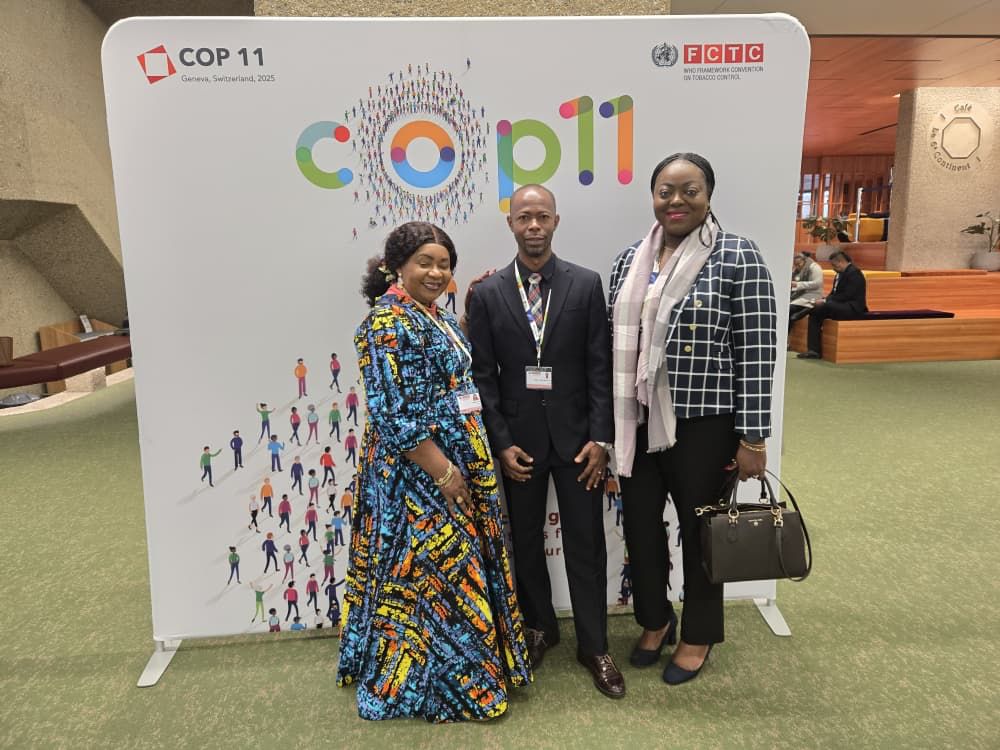
Prof Beyuo said Ghana viewed tobacco control as a matter of health sovereignty, economic resilience, and social justice and that the country’s leadership has put in many efforts to achieve that through key initiatives including the adoption of the first five-year National Tobacco Control Strategy.
The others were advancing taxation as both a health and economic tool, leveraging the momentum from the FCTC to strengthen systems and governance structures, and championing Africa’s collective action toward reducing NCDs.
He said Ghana was committed to extending legislation to cover shisha, chewing tobacco, and electronic cigarettes to ensure that young people were protected from new and evolving nicotine products.
“Ghana is fully prepared in implementing the Illicit Trade Protocol with a national roadmap,” he stated.
Prof Beyuo added, “Work is ongoing to strengthen track-and-trace systems, customs surveillance, border controls, and inter-agency information sharing to curb illicit tobacco trade.”
He said in the country’s bid to strengthen legislative and fiscal measures, introduced a specific excise tax system in 2023 through the Excise Duty Amendment Act.
“The new tax system applies 28 pesewas per cigarette stick, equivalent to GHS 5.60 per pack, consistent with ECOWAS tobacco taxation protocols.
“This shift from an ad valorem system to a mixed tax structure that combines specific and ad valorem elements enhances predictability, reduces affordability, and supports public health objectives. The legislation is continually reviewed to address emerging trends and global best practices,” he explained.
The leader of the delegation said tobacco advertising, promotion and sponsorship has been ban while mandated graphic hearth warning on all tobacco products instituted and partially enforced smoke-free policies across public spaces.
“National public awareness campaigns have been conducted to highlight the health risks of tobacco use. Tobacco control is included in the National Medium-Term Development Policy Framework 2022 to 2025,” Prof. Beyuo stressed.
He said a fully functional National Tobacco Control Inter-Agency Coordinating Committee chaired by the Ministry of Health has been coordinating efforts across key ministries and agencies.
The agencies include health, customs, finance, trade, education, and law enforcement.
He said Ghana was developing a Code of Conduct for public officials to operationalize FCTC Article 5.3, thereby insulating public health policies from industry interference.
He said traditional leaders in Northern Ghana have been engaged to eliminate the use of tobacco in dowry practices and replace it with healthier alternatives.
“Ghana stands ready to work with partners to continue driving progress globally and regionally,” he pointed out.
Mr Labram Musah on his part made a presentation on the implementation of the ECOWAS Mixed Excise Tax, “Outcomes since 2023 and Addressing Industry Interference.”
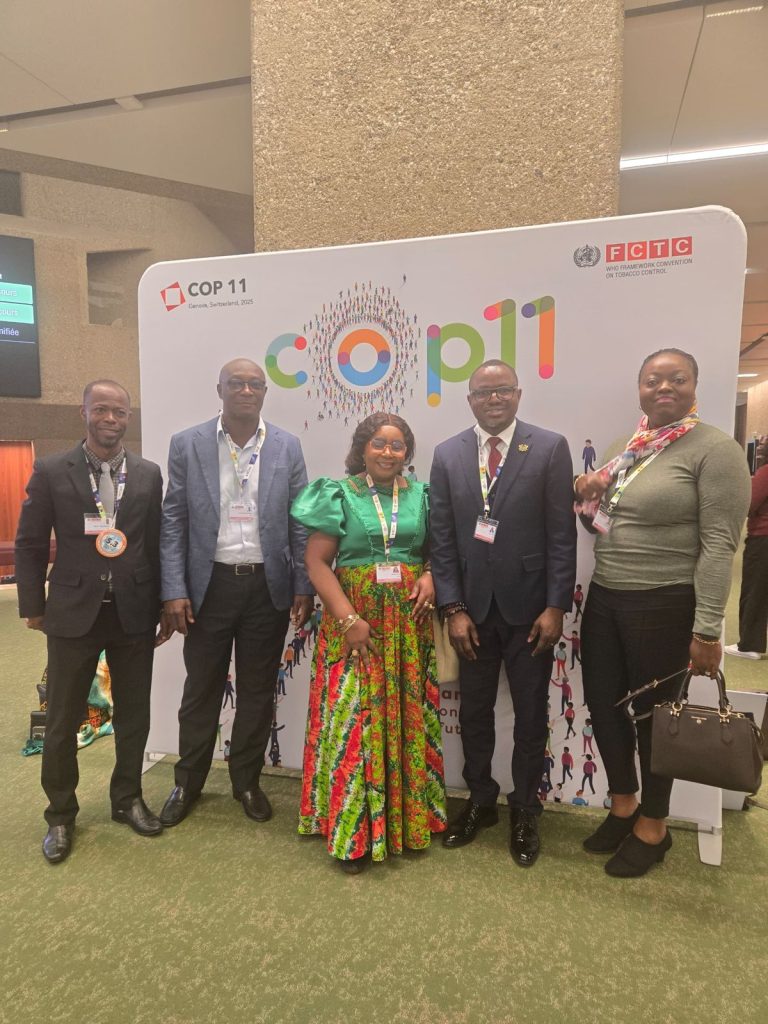
He said the implementation of the taxes have created a win-win scenario in Ghana by increasing excise tax revenue, reduce over consumption of health-harm products, reduce associated healthcare burden, and reduce disproportionate NCD risk in lower-income groups and increase health equity.
He mentioned challenges in the implementation such as Ghana’s excise tax stamps not designed based on WHO Article 8 of the Tobacco Protocol (ITP) Requirements.
Mr Musah recommended the Implementation of track-and-trace system in line with WHO Article 8 of the ITP requirements and strengthen its tax administration and automatic adjustment of specific cigarette excise tax rates for inflation and income.
He said Ghana must legislate to remove excise tax on electronic cigarettes, undertake upwards adjustment of the excise tax rates, or reformed to specific tax rates while earmarking the excise tax revenue to funds tobacco related illness and other health related priorities –Ghana Medical Trust Funds.
He called for financial support for research into implementation of new rates, and extensive training on the WHO FCTC particularly on 5.3, 6 and 15.
GNA


